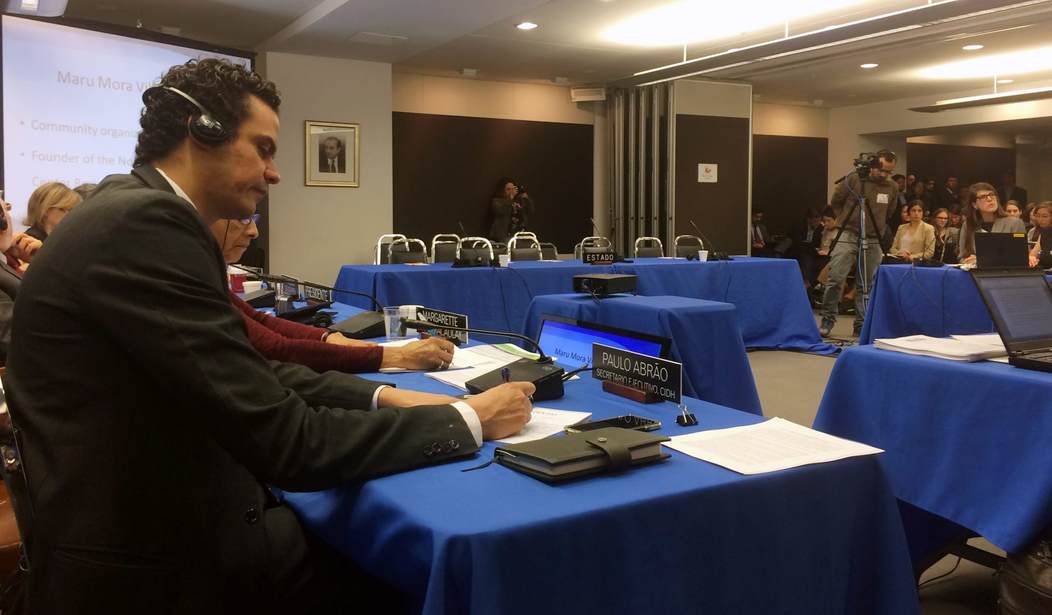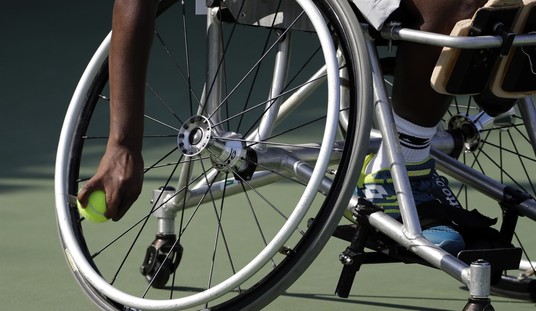WASHINGTON — The United States skipped a review today held by the autonomous human rights body of the Organization of American States on the impact of President Trump’s executive orders regarding border security and the travel ban.
The Inter-American Commission on Human Rights, headquartered in D.C., receives petitions to investigate claims of human rights vioations within the 35-member OAS and chooses to probe other cases on their own initiative. The IACHR has been holding public hearings since March 15, with the scheduled running through Wednesday, with topics ranging from the rights of asylum-seekers in Mexico to territorial rights of indigenous people in the Amazon.
In some cases, member states have requested reviews of situations in their home countries. The meeting schedule generally lists the country under review as a participant even if requested by a non-state petitioner, such as Panama participating in a requested review on the rights of environmental activists there, Nicaragua participating in a hearing on free-speech violations and Bolivia participating in a hearing on sexual violence against adolescents in the country.
This morning, the IACHR held two U.S.-focused sessions: “Impact of Executive Orders ‘Border Security and Immigration Enforcements Improvements;’ ‘Protecting the Nation from Foreign Terrorist entry into the United States;’ ‘Expediting Environmental Reviews and Approval for High Priority Infrastructure Projects’ on Human Rights in the United States,” and “Policies that Prevent Access to Asylum in the United States.” There was no U.S. government representative at either.
State Department spokesman Mark Toner told reporters today that the IACHR “did request” the United States appear at the hearings.
“We, the United States, do have tremendous respect for the role preformed by the IACHR in safeguarding human rights and fundamental freedoms throughout the hemisphere, including the United States,” Toner said. “However, it was not appropriate – and this was deemed not appropriate by our legal experts – for the United States to participate in these hearings while litigation on the matters was ongoing in U.S. courts. So we did not feel it was – we were able to address the concerns in an open hearing.”
Other participants at the hearings included the ACLU, the American-Arab Anti-Discrimination Committee, and immigrant-rights groups.
“Obviously, we’re mindful of anything that we say in an open hearing with respect to that executive order might affect its resolution or the resolution of that litigation,” Toner added.
A reporter noted that even when the U.S. had disputes with IACHR reviews in the past, the government always at least sent an official observer to the public hearings.
“We did inform the IACHR of our inability to attend these particular hearings. I said why we’re not attending these particular hearings – because of ongoing litigation surrounding some of these executive orders,” Toner said. “So whether it’s an observer or not, I’m not going to – or whether we could participate as an observer or not, in my view, isn’t pertinent.”
The OAS took the unprecedented step of sending monitors to 13 U.S. states on Election Day after candidate Trump said the vote would be rigged in Hillary Clinton’s favor.
In his recent budget request to Congress, Trump proposed slashing funds to the State Department office that pays dues for international organizations like OAS by 50 percent.








Join the conversation as a VIP Member